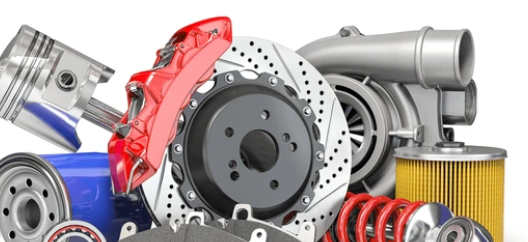In the labyrinth of understanding your car’s mechanic, direct auto parts stand out as the unsung heroes. They are the components of your vehicle that tackle the grind and grime of your daily commutes, highway splurges, and off-road adventures. But what exactly are direct auto parts, and why are they so crucial for your car’s performance?
What Are Direct Auto Parts?
direct auto parts refer to the components or accessories that can be directly installed into a vehicle without any customization or additional fabrication. These parts are the cogs in the machine, ranging from filters to engine parts and much more. They are the literal nuts and bolts that keep your automobile running smoothly.
Why Do They Matter?
Direct auto parts are the backbone of your car’s functionality. They can impact performance, efficiency, and even the vehicle’s safety. The quality of these parts can mean the difference between a reliable ride and constant headaches. Whether you’re looking to upgrade your vehicle’s performance or perform routine maintenance, understanding the role direct auto parts play is essential.
Key Components to Know
The engine, transmission, cooling, steering, and suspension systems are vital areas where direct auto parts play crucial roles. Here’s a brief overview of each:
• The Engine: From air intake systems to exhaust components, every part is key. Fuel injectors, camshafts, and crankshafts are direct parts that have a direct impact on power and fuel efficiency.
• The Transmission: Direct parts such as torque converters and clutches ensure smooth acceleration and gear shifts.
• Cooling Systems: Radiators, water pumps, and hoses work together to regulate your engine’s temperature.
• Steering and Suspension: Power steering pumps and struts help you maintain control and enjoy a smooth ride.
The Cost of Direct Auto Parts
Direct auto parts can vary significantly in cost, and skimping on quality can lead to short-term financial savings but long-term damage to your vehicle. OEM (Original Equipment Manufacturer) parts may come with a higher price tag, but they often ensure a perfect fit and quality that is identical to what was installed on the vehicle when it was brand new. Aftermarket parts are another option and can be more affordable, but you’ll need to do more research to ensure their quality and compatibility with your vehicle.
Maintenance and Replacement
Regular maintenance will often require the replacement of direct auto parts, and each component has its own lifespan. Understanding when to replace parts can be a game-changer in prolonging your vehicle’s life and maintaining its performance. For example, air filters should be changed every 12,000 miles or so, while spark plugs may last up to 100,000 miles in most newer vehicles.
Upgrading with Performance Parts
For those looking to enhance their vehicle’s capabilities, performance parts are direct upgrades from stock parts. High-flow air filters, turbochargers, and suspension kits are just a few examples of parts that can improve horsepower, torque, and handling. However, when upgrading, it’s important to match the part’s changes with complementary adjustments to the vehicle’s systems.
Environmental Impact
Direct auto parts aren’t just about performance; they also have a significant environmental impact. Recycling and proper disposal of used parts and fluids reduce the carbon footprint of the automotive industry. Using parts made from recycled materials or that improve fuel efficiency can also benefit the environment.
In Conclusion
Direct auto parts are the foundation of your vehicle’s operation. Understanding their role, maintaining them properly, and choosing the right parts for your needs is essential. Whether you’re maintaining, repairing, or upgrading, it pays to be knowledgeable about the components that keep your car on the road. With this guide, you’re equipped to make informed decisions about your auto parts and enjoy the ride, knowing that you have a hand in your vehicle’s health and performance.
Blog & Magazine
